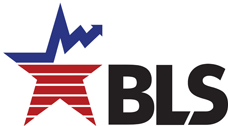Winston
Platinum Member
- Thread starter
- #81
First, I will agree to rescinding Clinton's cap on the deduction of cash compensation if you can agree to the elimination of SEC 10b-18. Companies would have to account for cash compensation in SEC filings like the 10-K, they don't have to account for stock option liabilities. That should change too. As an investor I believe you agree.Lets start with the later first. When tax rates are right at the peak of that infamous Laffer curve it means we are collecting the most revenue with the least amount of negative impact on the economy. It is at the most efficient point.
Most efficient what?
As we stray away from that peak, on either side of the curve, the taxes begin to disrupt the economy.
Where does the Laffer Curve mention "taxes disrupt the economy"?
But stock buybacks are primarily a means of manipulating stock prices in order to inflate executive compensation and reward investment bankers and hedge fund managers.
If Clinton hadn't made cash compensation over $1 million non-deductible, that might be less of an issue, right?
Let's reverse that. Does that sound good to you?
In reality, a stock buyback is an open admission by the company that they cannot find any acceptable capital
investments and are therefore giving the money back to the shareholders.
There are worse things to do with money than giving it back to the owners.
It's preferable to using it to build wasteful conglomerates.
Or building giant corporate HQs (cough..Bear Stearns..cough)
Now how can that be? You claim the corporate tax cut increases capital investment
Well, if you can show that more capital investment occurs at an 80% rate than at a 20% rate, I might change my tune.
I will not play the 80 verses 20 gain, both levels are at the far end of the curve and far away from the peak, which most economist believe is somewhere around 40%, the Fifties kind of pan that out. Same holds true for income tax levels, although they probably hit the top of the curve at around 65%.
And sorry, but I kind of like 383 Madison avenue, and it had little to nothing to do with Bear Stearns' collapse. Seems to suit JP Morgan Chase quite well.









